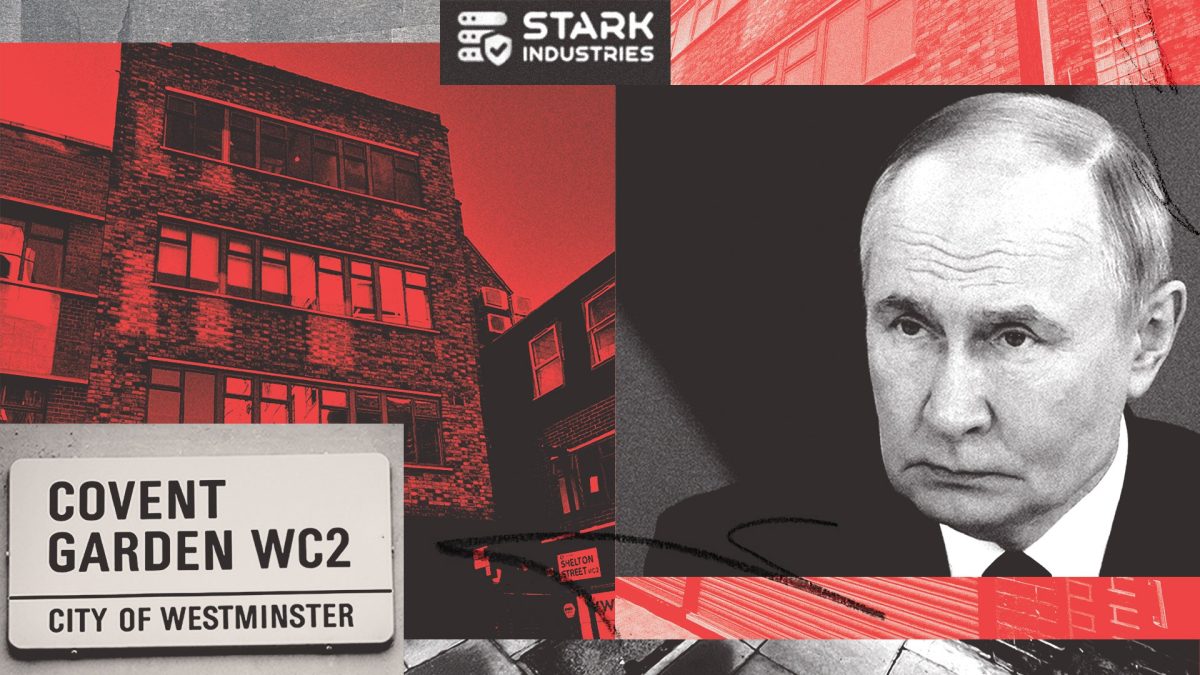Putin's hidden cyber war hub ... in the heart of Covent Garden

The Role of a UK-Based Company in Russian Cyber Warfare
A recent revelation has exposed how Vladimir Putin’s intelligence services have leveraged a UK-based company to execute a cyber warfare campaign. This includes targeting Russians who are willing to fight for Ukraine, highlighting the complexity and reach of modern digital conflict.
The incident is particularly damaging for the UK, not only due to the criticism it brings regarding "lax" corporate regulations but also because it was the European Union's sanctions that ultimately halted the Kremlin's covert operations, rather than British action.
Incorporation of Stark Industries Solutions Ltd
Just before Russia's invasion of Ukraine in February 2022, a technology company named Stark Industries Solutions Ltd was incorporated at Companies House with a registered address in Covent Garden, one of London's most famous tourist areas. The firm offered web-hosting services, allowing clients to place websites online from anywhere globally for under £6 a month.
This strategic location enabled third parties linked to the Kremlin to use the company's services to mask their origins and gain credibility, according to experts. The EU later imposed sanctions on Stark Industries and its owners, citing that its clients over the past three years included various Russian state-sponsored actors engaged in destabilizing activities such as cyber attacks and coordinated information manipulation.
Background of the Company Owners
Stark Industries was founded and managed by two tech tycoon brothers, Ivan and Iurie Neculiti, who hail from Transnistria, a breakaway region of Moldova aligned with pro-Russian separatists. Their company, humorously named after the fictional "Stark Industries" from Marvel's Iron Man comics, attracted significant business from shadowy corners of the Russian government aiming to cause digital chaos.
Despite having no UK employees and assets below £25,000, the company utilized a mail-drop address to appear as a legitimate British business. It promised quick website setup, often within 30 minutes.
Inadequate Scrutiny and Cyber Security Concerns
Cyber security experts have highlighted that Stark Industries effectively served as an offshore hub for Russia's hybrid warfare strategy during the Ukraine conflict. This allowed the Kremlin's intelligence services and subcontractors to conceal the origin of their hostile acts, ranging from large-scale cyber attacks to operating fake news sites that spread propaganda.
When The i Paper visited the address used by Stark Industries, it found it to be an office services company located near Covent Garden. These services offer a registered office or “mailbox” service, meeting the legal requirement for UK-registered firms to have a physical address on British soil.
Phishing Campaigns Targeting Putin Opponents
Separate sources revealed that Stark Industries' servers were allegedly used for a phishing campaign aimed at exposing potential opponents of the Putin regime. This involved setting up hoax copies of websites run by Ukrainian paramilitary groups to recruit Russians interested in joining the war effort in Kyiv.
Artem Tamoyan, a Russian national now running Malfors, a cyber investigation platform, discovered at least 10 dummy websites hosted on Stark Industries’ servers in the Netherlands. These sites targeted units like the Freedom of Russia Legion and the Russian Volunteer Corps, both classified as terrorist organizations by Moscow.
Company Rules and UK Regulatory Loopholes
The presence of a company deemed to aid Russia's subversive efforts in central London has sparked complaints about the UK's Companies House system. Amnesty International UK pointed out that lax regulations and inadequate scrutiny allow serious abuses, including violations of sanctions laws.
Peter Frankental, Amnesty’s economic affairs director, emphasized that until these loopholes are closed, the UK risks becoming a haven for those using corporate structures to profit from impunity and abuse.
Voluntary Dissolution and Legal Implications
Stark Industries is now voluntarily winding itself up, with Iurie Neculiti filing an application to strike it off the UK register. While the UK authorities have not taken enforcement action against the company, the EU sanctions have imposed an asset freeze and travel ban on the Neculiti brothers.
The EU sanctions describe the Neculitis as supporting actions by the Russian Federation that threaten democracy, stability, or security within the bloc. Neither Ivan nor Iurie Neculiti have commented on the allegations.
Ongoing Concerns and Future Measures
Campaigners argue that more needs to be done to reduce the abuse of the UK's company registration system. As of November, new or existing company directors and owners will need to verify their identities with Companies House.
Amnesty’s Frankental remains concerned about the lax regulations and inadequate scrutiny over those registering companies in the UK. He stressed that the UK must take further steps to prevent the misuse of its corporate structures for facilitating serious abuses.
While the UK authorities are beginning to tighten rules, it remains unclear whether Stark Industries or the Neculitis have been investigated following their designation under EU sanctions. A Foreign Commonwealth and Development Office source declined to comment on potential future designations.

Comments
Post a Comment